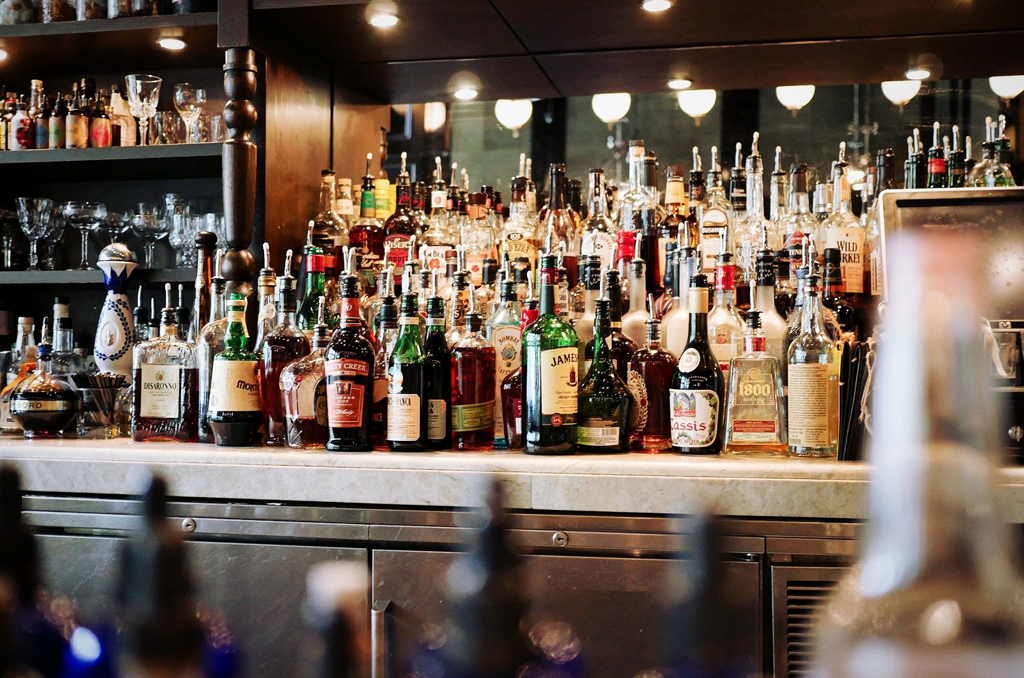Bar with assorted spirits. Courtesy: Image by Pexels from Pixabay
A wildly popular “alcohol to go” component in Governor Ron DeSantis’ emergency executive order may be here to stay.
The Florida governor added what he called “alcohol to go” in an executive order earlier this year to assist restaurants during the pandemic. The order included a previously banned practice in the state, which allowed restaurants to include alcoholic beverage service in their takeout process: hence allowing drivers to operate their vehicles with the exposure of the beverage.
According to Florida Statute Section 316.1936, persons are prohibited from possessing an open container of alcoholic beverages in a motor vehicle.
While the emergency order required the establishments to provide a “sealed-container,” it is still considered an open container by law. However, the order allowed patrons to transport the beverages from the restaurants to their homes or place of dining during the quarantine period to help boost sales for restaurants.
Now, two Florida state senators believe the order should remain a permanent fixture.
Sen. Jennifer Bradley, R-Fleming Island, and Sen. Jeff Brandes, R-St. Petersburg filed separate measures to allow the sale or delivery of spirited beverages by the package for “off-site” consumption to businesses that hold a valid state liquor license.
“We’re just not allowing somebody to take their drink home in a roadie and a red Solo Cup,” said the St. Petersburg senator.
Under the proposal, the beverage must be provided in a sealed container with established requirements from the Department of Business and Professional Regulation if passed and signed into law by Gov. DeSantis.
“It was wildly successful and, in many ways, helped businesses get over the hump of the pandemic. We think it is a process that should continue, so we are looking to establish it in state law,” Brandes said, referring to the governor’s temporary pandemic inclusion. “We saw this during the pandemic. There weren’t any major problems. … I don’t think this is going to be a major issue for us to streamline the process and allow Floridians to have more freedom.”
The governor has voiced his support for the proposal and backed the idea of the practice back in September at a meeting with Fort Myers based restaurant operators.
“I think that you guys need all the help you can get, and I think it would make a lot of sense,” DeSantis said. “So, I’m for it being permanent. And I think that you’ll probably get a pretty good reception in the Legislature, just based on the experience and just based off everyone having to go through what you guys have gone through.”
The proposal also has important support from several lobbying interests in Tallahassee and wants the alcohol-ban to be part of a “wide-ranging list of pandemic-related legislative proposals.”
The RESET task force, co-chaired by executives from Associated Industries of Florida, the Florida Retail Federation, the Florida Restaurant and Lodging Association, and the National Federation of Independent Business Florida, drafted a 74-page report that highlighted the current carryout alcohol-law and other regulations as “antiquated and no longer necessary.”
The proposal’s idea is not to afford drivers the privilege of operating a motorized vehicle under the influence but to provide restaurants an expanded revenue stream past the pandemic.
The containers would have to be regulated, and rules would have to be put in place to work.
Many believe the rule could work, with some saying drivers would probably drive safer to avoid any troubles with local officers.
Brandes’ proposal (SB 134) is slightly more specific than Bradley’s (SB 148), by spelling out that “malt beverages must comply with state container size, labeling and filling requirements,” per News4Jax.
Brandes also hopes to amend an existing law requiring patrons to order a full-meal before taking home a partially finished, re-sealed bottle of wine on their person. The senator’s change would be that patrons would only have to have ordered a “meal,” not the whole course, to be eligible to take the bottle with them.
Both proposals are scheduled to hit the floor in the 2021 session, which begins March 2.
Are you interested in Florida government? For stories like this and much more: Florida Insider is dedicated to educating, entertaining, and informing its readers about everything Florida. Easy to read content at the palm of your hands and covering the stories that matter.
Chris began his writing as a hobby while attending Florida Southern College in Lakeland, Florida. Today he and his wife live in the Orlando area with their three children and dog.

